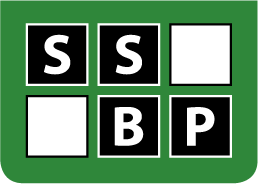Presentation 18 – Dr Honey Heussler
SSBP Virtual Symposium 2023
An Open-Label Trial Assessing Short- and Long-Term Tolerability and Efficacy of ZYN002 (Cannabidiol) Administered as a Transdermal Gel to Children and Adolescents with 22q11.2 Deletion Syndrome (INSPIRE)
Presenting Author : Dr Honey Heussler
Abstract
An Open-Label Trial Assessing Short- and Long-Term Tolerability and Efficacy of ZYN002 (Cannabidiol) Administered as a Transdermal Gel to Children and Adolescents with 22q11.2 Deletion Syndrome (INSPIRE)
Heussler H.1, Duhig M.1, Cohen J.2, Buchanan C.3, O’Neill C.4, O’Quinn S.4
1 Centre for Clinical Trials in Rare Neurodevelopmental Disorders, Children’s Health Queensland Hospital and Health Services, South Brisbane, Queensland, Australia
2 Genetic Clinics Australia, North Caulfield, Victoria, Australia
3 Greenwood Genetic Center, Greenville, SC, USA
4 Zynerba Pharmaceuticals, Devon, PA, USA
Background: Behavioural problems and anxiety occur frequently in 22q11.2 deletion syndrome (22q). ZYN002 is a pharmaceutically produced cannabidiol transdermal gel. INSPIRE was an open-label, phase 2 trial evaluating safety/tolerability and efficacy of ZYN002 in individuals ages 4 to <18 years, in treating behavioural and anxiety-related symptoms in 22q.
Methods: Individuals having a Clinical Global Impression-Severity (CGI-S) score ≥4 and a Pediatric Anxiety Rating Score-Revised (PARS-R) score ≥10 were enrolled. Patients received 250 or 500 mg/day (weight-based) added to current therapy for 14 weeks (Period 1). Patients with ≥35% improvement in Aberrant Behavior Checklist-Community (ABC-C) Irritability at week 14 could continue for an additional 24 weeks (Period 2). Safety assessments included adverse events (AEs), vital signs, laboratories, and electrocardiograms (ECGs). Efficacy assessments included the PARS-R, Anxiety, Depression and Mood Scale (ADAMS), ABC-C and CGI-Improvement (CGI-I).
Results: Twenty patients, 60% males, mean age of 9.9 years enrolled. Seventeen patients completed Period 1 and 13 patients entered Period 2. Statistically significant improvements occurred in the PARS-R, ADAMS and ABC-C at Week 14. Percent improvement from baseline were PARS-R: Total Score 40.6%, p=0.0005; ADAMS: Total Score 45.3%, p=0.0005; General Anxiety 43.6%, p=0.0005; Depressed Mood 50.3%, p=0.0033; Social Avoidance 41.3%, p=0.0084; Obsessive/Compulsive Behaviour 64%, p=0.0037; Manic/Hyperactive Behaviour 38.2%, p=0.0032; and ABC-C: Social Withdrawal 27.6%, p=0.011; Inappropriate Speech 18.3%, p=0.0166; Stereotypic Behaviour 52.1%, p=0.0155; Irritability 36.3%, p=0.0055; Hyperactivity 16.5%, p=0.0091. Ten of 16 patients (62.5%) were “much improved” or “very much improved”. Improvements at Week 14 were sustained through Period 2. Over 38 weeks, 3 patients reported treatment related AEs, all mild application site events. One patient discontinued due to AEs not related to ZYN002. Four non-treatment-related serious AEs were reported. No clinically significant changes in vital signs, ECGs or laboratories were reported.
Conclusions: ZYN002 was well tolerated and improved behavioural and anxiety-related symptoms in 22q. Further studies are warranted.
Keywords: 22q11.2; anxiety, behavioural problems, cannabidiol
Discussion Section
Use the comment box below to post questions for the author, and to discuss this presentation.
Note:
All comments are public, and comments may be moderated.
2025 SSBP Conference
Membership
Information
Contact
The Society for the Study of Behavioural Phenotypes (SSBP)
The Society for the Study of Behavioural Phenotypes (SSBP) is an international, interdisciplinary research society for studying the development, learning and behaviours of individuals with genetic disorders and ways of helping to improve lives. The society is registered as a charity in the UK (No. 1013849) and was set up in 1987.
Copyright 2025 © | The Society for the Study of Behavioural Phenotypes (SSBP)
